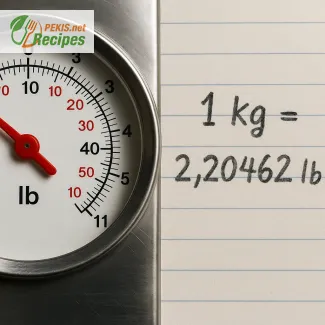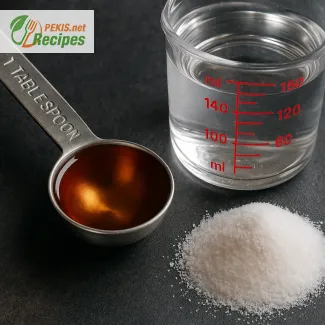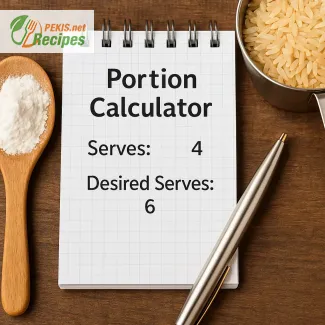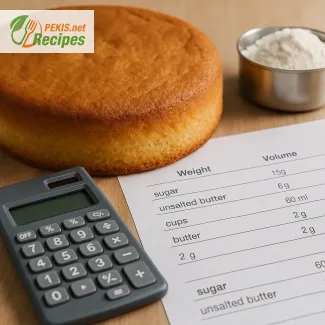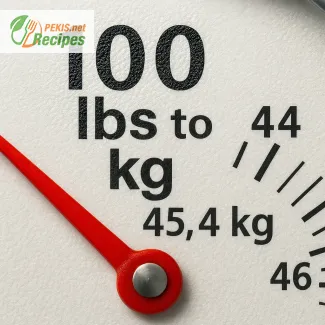
Understanding How to Convert Pounds to Kilograms Without a Calculator
A practical guide to converting 100 lbs to kg and mastering other weight conversions
Converting 100 lbs to kg is a common task, especially in everyday situations like following recipes, comparing product weights, or managing fitness goals. If you're reading nutritional information, weighing groceries from international markets, or shipping goods across borders, you’ve likely encountered pounds (lbs) and wondered how they relate to kilograms (kg). This article is designed to help English-speaking readers understand not only how to convert 100 lbs to kilograms, but also why this conversion matters in practical, real-life contexts—no calculator or science degree required.
We'll go beyond the basic number and offer you a clear, easy-to-remember method, use cases in cooking and fitness, and tips for avoiding common mistakes.
Why 100 lbs to kg is such a commonly needed conversion
In many English-speaking countries like the United States, pounds remain the standard for body weight, packaged goods, and shipping. However, much of the world—especially Europe—uses kilograms as the standard weight unit. This creates a constant need to convert between these two systems.
If you're cooking from an international cookbook, ordering imported products online, or using global fitness programs, you’ve probably asked yourself: "How many kilograms is 100 pounds?" The answer, simply put, is:
100 lbs = 45.3592 kg
But rather than memorizing long decimal numbers, there’s a much easier way to approach this.
The simple formula: how to convert pounds to kilograms
There’s a straightforward equation used around the world to convert pounds into kilograms:
Weight in kilograms = Weight in pounds × 0.453592
So in the case of 100 lbs:
100 × 0.453592 = 45.3592 kg
You can round this to 45.36 kg or simply 45.4 kg, depending on the level of precision required. For cooking or everyday use, 45.4 kg is more than accurate enough.
Practical examples: what does 100 lbs represent?
To understand how much 100 pounds actually is, it helps to visualize it in real terms:
- A large bag of dog food typically weighs about 40–50 lbs, so two bags = approx. 100 lbs
- An average adult female weighs somewhere between 110–160 lbs, depending on height and body composition
- A full-size washing machine may weigh between 130–180 lbs, meaning 100 lbs is quite substantial
Now, imagine you're buying meat in bulk from a supplier that lists everything in lbs, but your recipe, diet plan, or kitchen scale only works in kg. Without this conversion, you could easily overestimate or underestimate what you need.
Common uses for lbs to kg conversions in cooking and fitness
Cooking and baking measurements
Many American recipes list large quantities in pounds, while European cookbooks tend to use kilograms. If you're making a recipe that calls for 100 lbs of flour or fruit—perhaps for a catering event or food production batch—you’ll need to convert that to kg to scale accurately using European tools or packaging.
Most kitchen scales in Europe use grams or kilograms, so knowing that 100 lbs = 45.4 kg helps you measure large quantities without confusion or errors.
Gym and fitness tracking
If your weightlifting plan says you need to lift 100 lbs, but your gym equipment is labeled in kilograms, you’ll need to convert that to stay on track. Knowing the correct equivalent ensures you don't lift less—or more—than planned.
100 lbs = 45.4 kg, which could be rounded to a 45 kg barbell for simplicity, depending on available weight plates.
Rounding up or down: when precision matters
In scientific, medical, or pharmaceutical fields, rounding even the smallest unit can lead to large-scale miscalculations. But in everyday life—especially in the kitchen or at the gym—a little rounding is not just acceptable, it’s practical.
Use these simple guidelines:
- For everyday cooking: round to 45.4 kg
- For shipping labels or baggage: use 45.36 kg
- For medical or lab use: retain full 45.3592 kg
Knowing your context will help you decide whether to round or not.
Why not just use an online calculator?
Online calculators are convenient, but they don't help you understand the process. Once you grasp the conversion formula and can apply it mentally, you no longer need to rely on third-party tools or internet access. This is especially useful when:
- Traveling abroad and managing luggage weight
- Preparing food where both imperial and metric systems are used
- Reading nutrition labels that mix the systems
- Working in professional kitchens, freight logistics, or fitness training
The goal isn’t just to convert 100 lbs to kg, but to become confident in handling these conversions on your own.
How to memorize the conversion easily
Here’s a memory trick:
Think of 1 pound as almost half a kilogram.
More precisely:
1 lb ≈ 0.45 kg
So if you have 100 lbs:
- Halve it → 50
- Subtract a little (around 5%) → approx. 45
That gives you a rough but reliable estimate for quick situations. Over time, this becomes intuitive, and you can handle conversions like:
- 50 lbs ≈ 22.7 kg
- 150 lbs ≈ 68 kg
- 200 lbs ≈ 90.7 kg
Know your conversions, save time and effort
Knowing how to convert 100 lbs to kg is more than just a number trick—it’s a skill that bridges cultures, kitchens, and workflows. Whether you’re shopping at an international market, lifting weights, scaling up a recipe, or preparing shipping labels, understanding this simple conversion will save you time and prevent costly errors.
By learning just one core formula—multiply by 0.453592—you unlock dozens of practical uses in your daily life. And with a little practice, you won’t even need a calculator.
